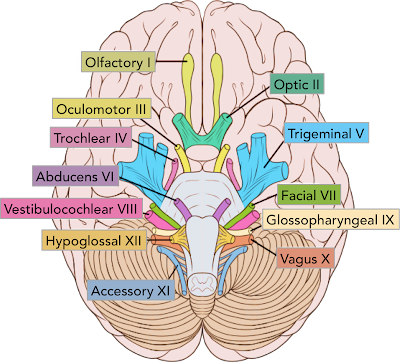CAR-T Therapy: Incorporating Genetic Engineering with Cancer Treatment
CAR-T is a novel, personalised treatment that is currently revolutionising cancer treatment.
Chimeric Antigen Receptor (CAR) T-cell therapy uses the body's own T-cells to recognise and kill cancerous cells. The individual's autologous T-cells are taken from a patient's blood sample (via an apheresis machine) and are genetically modified in vitro so that heterodimeric proteins known as chimeric antigen receptors are expressed on the surface of the T-cell, forming CAR T-cells. Once these cells are cultured to millions in number, they are infused back into the patient - the new receptor will be able to directly bind to a specific tumour cell receptor (i.e. tumour markers, which differ massively from normal body cell receptors) to facilitate their death.
To insert the gene that codes for the CAR protein, virus' with modified plasmids tend to be used as a vector. Virus' invade cells, incorporating their own viral DNA into the cell's DNA using enzymes such as integrase and reverse-transcriptase - this mechanism proves useful when delivering the required gene into T-cells.
Just like normal T-cells, the modified CAR-T cells can circulate around the body even after the cancerous cells have been killed. According to bloodwise.org, research has shown that CAR T-cells can remain in the body and continue to be active for long periods of time, so unlike other conventional cancer drugs, it is a one-time treatment.
Who Can Have CAR T-cell Therapy?
Currently, the treatment is available across the country in over 9 centres, but there are certain other requirements and eligibilities:
Ultimately, the decisions decided by a panel of expert clinicians following on from a referral from your specialist doctor. Obviously this treatment cannot be given to every single cancer patient: the NHS is already stretched and challenged with funding, and CAR-T therapy will only add to their woes. CancerResearchUK has stated that the treatment costs around £280,000 per patient.
Side Effects?
Chimeric Antigen Receptor (CAR) T-cell therapy uses the body's own T-cells to recognise and kill cancerous cells. The individual's autologous T-cells are taken from a patient's blood sample (via an apheresis machine) and are genetically modified in vitro so that heterodimeric proteins known as chimeric antigen receptors are expressed on the surface of the T-cell, forming CAR T-cells. Once these cells are cultured to millions in number, they are infused back into the patient - the new receptor will be able to directly bind to a specific tumour cell receptor (i.e. tumour markers, which differ massively from normal body cell receptors) to facilitate their death.
To insert the gene that codes for the CAR protein, virus' with modified plasmids tend to be used as a vector. Virus' invade cells, incorporating their own viral DNA into the cell's DNA using enzymes such as integrase and reverse-transcriptase - this mechanism proves useful when delivering the required gene into T-cells.
Just like normal T-cells, the modified CAR-T cells can circulate around the body even after the cancerous cells have been killed. According to bloodwise.org, research has shown that CAR T-cells can remain in the body and continue to be active for long periods of time, so unlike other conventional cancer drugs, it is a one-time treatment.
Who Can Have CAR T-cell Therapy?
Currently, the treatment is available across the country in over 9 centres, but there are certain other requirements and eligibilities:
- Currently designed for people with advancing or progressing blood cancers e.g. leukemia who have limited treatment options.
- For people who's cancers have relapsed after initial treatment
- For refractory/resistant diseases whereby the cancer is unresponsive to any other treatments
Ultimately, the decisions decided by a panel of expert clinicians following on from a referral from your specialist doctor. Obviously this treatment cannot be given to every single cancer patient: the NHS is already stretched and challenged with funding, and CAR-T therapy will only add to their woes. CancerResearchUK has stated that the treatment costs around £280,000 per patient.
Side Effects?
- The sudden large influx in T-cells may cause "Cytokine release syndrome" - whereby an excessive amount of cytokines (signalling proteins) can result in a reaction similar to a severe infection. which leads to flu-like symptoms, drops in blood pressure and possible neurological side effects.
- During treatment for certain types of leukemia, the CAR T-cells also target 'CD19' receptors found on B-cells, another immune cell that is vital in producing antibodies. CAR T-cells target B-cells thus reducing their number which make it harder for you to fight infection in the long term. Therefore immunoglobulin therapy is employed, giving you a temporary boost in antibody count to make up for the declining number of B-cells (neutropenia)
- Low red blood cell count (anemia)
Advantages:
- Short treatment time needed: administered with a single infusion that require at most only two weeks of inpatient care.
- Much more rapid recovery in comparison to aggressive techniques such as chemotherapy
- Is classified as a 'living drug', remaining active and beneficial for many years'
- Because it is a targeted therapy, it is much less toxic and wide-spread than chemo and radiotherapy. Chemo/radiotherapy can affect many other rapidly-dividing cells such as hair cells.
Conclusion:
Recent clinical trials have shown very promising results, with 92% of end-stage patients fully recovering from Acute Lymphocytic Leukemia. It is without a doubt that the employment of this treatment has caused a huge leap forward in terms of Cancer Immunotherapy.
-------------------------------------------------------------------------------------------------------------
Further Reading // Sources




Comments
Post a Comment